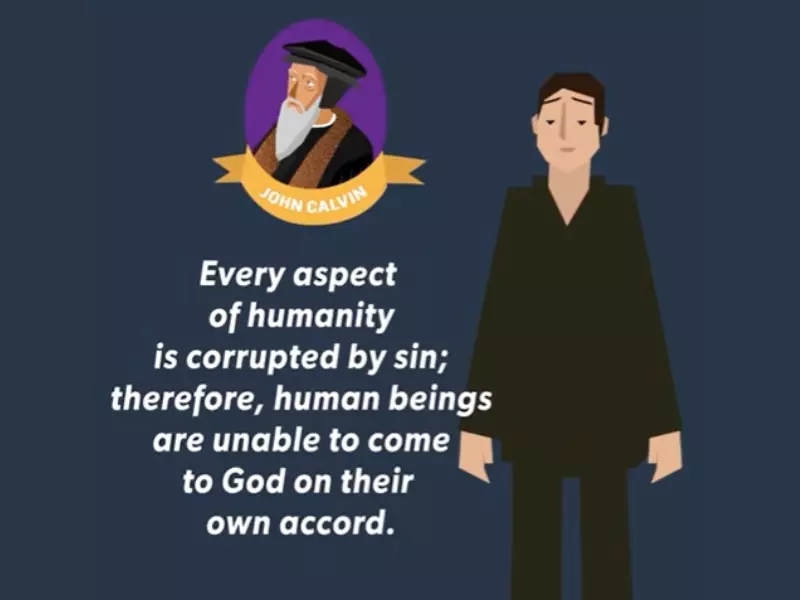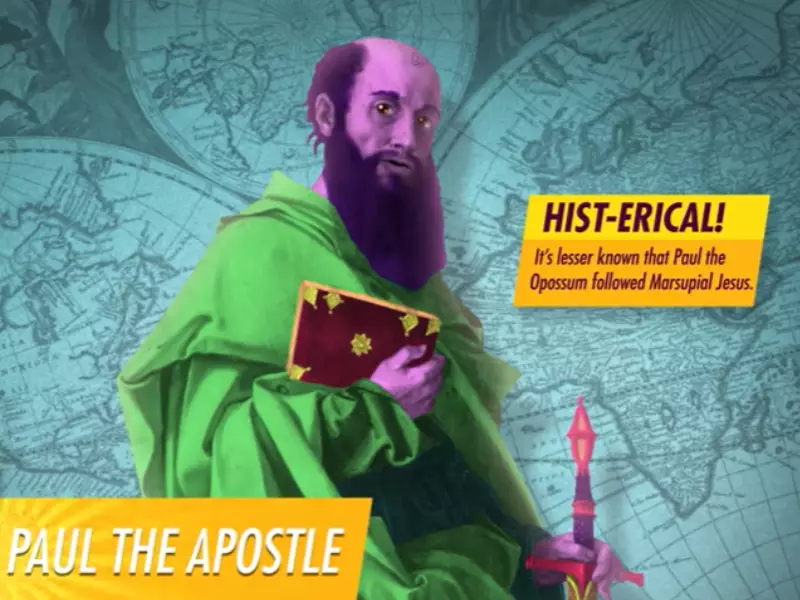Calvinism and Lutheranism are two of the major theological movements that emerged from the Protestant Reformation, fundamentally altering the landscape of Christianity. Both traditions share a common origin in their quest to reform the Catholic Church’s practices and doctrines in the 16th century. However, despite their shared heritage, they diverge significantly in their beliefs and practices, shaping the development of Protestant Christianity in distinct ways.
A major difference between Calvinism and Lutheranism relates to their views on predestination and human free will. Calvinism holds a strong belief in predestination, asserting that God has preordained every individual’s eternal fate, with no role for human free will in achieving salvation. In contrast, Lutheranism emphasizes justification by faith alone, asserting that salvation is accessible to all through faith in Jesus Christ, and that human beings, while unable to save themselves, can accept this gift through faith.
This divergence in beliefs reflects deeper theological and philosophical differences between the two traditions. Calvinism’s emphasis on the sovereignty of God and Lutheranism’s focus on the grace of God through faith reveal varied approaches to understanding the relationship between divine providence and human agency. These differences have not only theological implications but also influence worship practices, sacramental views, and church governance, contributing to the rich tapestry of Protestant denominational diversity.

Historical Context
Origins of Calvinism
Calvinism traces its roots back to the work of John Calvin, a French theologian and pastor who played a pivotal role in the Protestant Reformation. Born in 1509, Calvin’s writings and teachings laid the foundation for the Reformation in Switzerland and beyond. His most influential work, “Institutes of the Christian Religion”, was first published in 1536 and articulated a systematic approach to Christian theology, emphasizing the sovereignty of God, predestination, and the absolute depravity of man.
The spread of Calvinism was facilitated by its adoption in various parts of Europe, including Switzerland, France, the Netherlands, Scotland, and eventually parts of North America. Calvin’s ideas influenced not only religion but also governance and society, advocating for a form of church government that was later reflected in the Presbyterian and Reformed churches worldwide.
Origins of Lutheranism
Lutheranism began with the efforts of Martin Luther, a German monk, priest, and theologian, whose dispute with the Catholic Church sparked the Protestant Reformation in the early 16th century. In 1517, Luther published his 95 Theses, challenging the Catholic Church’s teachings and practices, especially the sale of indulgences. His call for reform led to the establishment of Lutheranism, which emphasized salvation by faith alone, the authority of Scripture, and the priesthood of all believers.
Luther’s translation of the Bible into German made the scriptures more accessible to the general population, fostering a culture of inquiry and individual study of the Bible. This act not only spread Luther’s teachings but also contributed to the development of the German language and literature.
Reformation and Its Impact
The Protestant Reformation, driven by the efforts of figures like Luther and Calvin, profoundly changed the religious, political, and social landscape of Europe. It challenged the authority of the Pope and the Catholic Church, leading to the creation of Protestant churches and significantly altering the course of Western civilization.
The Reformation encouraged the translation of the Bible into vernacular languages, promoting literacy and education. It also led to the rise of nation-states and contributed to the development of modern democracy by advocating for the separation of church and state and emphasizing individual conscience.
Core Beliefs
Calvinism
Predestination
One of the hallmark doctrines of Calvinism is predestination. This belief asserts that God has foreordained everything that happens, including the eternal destiny of every individual. Calvinists believe that God has chosen some people for salvation (the elect) and others for damnation, based on His will and not on any merit or action of their own.
Sovereignty of God
Central to Calvinism is the sovereignty of God—the idea that God is supreme and exercises control over all aspects of the universe. This belief underpins the Calvinist view of predestination and emphasizes that God’s will is paramount and irresistible, shaping every event and outcome in the world.
Lutheranism
Justification by Faith
Lutheranism posits that salvation is achieved through faith alone in Jesus Christ, not by human works or merits. This principle, known as justification by faith, highlights the belief that faith in Christ is the only way to receive God’s forgiveness for sins and eternal life. It underscores the grace of God as the sole basis for salvation.
Role of Sacraments
Lutheranism maintains a strong emphasis on the sacraments, particularly baptism and the Eucharist (Lord’s Supper), as means of grace. Lutherans believe that these sacraments, instituted by Christ, are not merely symbolic but convey the grace of God to believers, strengthening their faith and union with Christ.
- Baptism is seen as a sacrament of initiation into the Christian life, marking the individual’s reception of God’s grace.
- The Eucharist is celebrated as a sacrament of nourishment, wherein believers partake of the body and blood of Christ, reaffirming their faith and receiving spiritual sustenance.

Major Difference Highlight
Predestination vs. Free Will
A pivotal difference between Calvinism and Lutheranism centers around the concepts of predestination and free will. This difference not only shapes theological beliefs but also influences the spiritual life of adherents.
Explanation of Predestination in Calvinism
Calvinism posits that God, in His sovereignty, has predestined certain individuals for salvation, a concept known as election. This belief is based on the notion that God’s will is ultimate and decides the eternal destiny of every person. Calvinists argue that this predestination showcases God’s omnipotence and grace, making salvation a direct gift from God that cannot be earned by human effort.
- God’s Sovereignty: Central to Calvinism, highlighting God’s absolute power and knowledge.
- Election: The belief that God has chosen certain individuals for salvation.
- No Role for Free Will: In Calvinism, human free will does not contribute to one’s salvation.
Lutheranism’s View on Human Free Will and Grace
Contrastingly, Lutheranism emphasizes justification by faith alone. It teaches that while humans cannot achieve salvation through their actions, they have the free will to accept or reject God’s grace. This perspective underscores the role of faith as a response to God’s grace, suggesting that while salvation is a divine gift, human faith plays a crucial role in receiving it.
- Justification by Faith: The belief that faith in Jesus Christ alone grants salvation.
- Role of Free Will: Humans have the capacity to accept God’s grace through faith.
- Grace and Faith: Salvation is seen as a cooperative act between divine grace and human faith.
Worship and Liturgy
The theological differences between Calvinism and Lutheranism extend into their worship practices and liturgical traditions, reflecting their distinct understandings of scripture, sacraments, and the role of the church.
Calvinist Approach
Calvinist worship is characterized by its simplicity and focus on the sovereignty of God. Services are typically centered around the preaching of the Word, with music and sacraments serving to support the sermon. Calvinists prefer a form of worship that reflects the majesty and holiness of God, often with a minimalistic approach to church aesthetics.
- Preaching-Centered Services: Emphasis on the sermon as the primary means of grace.
- Simplicity in Worship: Minimalist aesthetics to focus on God’s word.
- Music and Sacraments: Supportive roles to the preaching of the Scripture.
Lutheran Tradition
Lutheran worship, while also centered on the Word, places a greater emphasis on the sacraments, especially the Eucharist. Lutherans view liturgy as a means through which God delivers grace and strengthens faith. Thus, their services often include a rich tapestry of hymns, liturgical elements, and a strong focus on the sacramental presence of Christ.
- Sacramental Focus: Strong emphasis on the Eucharist as a means of grace.
- Rich Liturgical Tradition: Involves hymns and liturgical elements reflecting Lutheran theology.
- Word and Sacrament: Both are seen as central to worship and spiritual life.
Impact on Modern Christianity
The theological distinctions between Calvinism and Lutheranism have had a profound impact on the development of Protestant denominations and have contributed to the diverse religious landscape of modern Christianity.
Influence on Protestant Denominations
Calvinism and Lutheranism have influenced various Protestant traditions, shaping beliefs, worship styles, and church governance. Calvinism’s emphasis on God’s sovereignty and predestination has led to a variety of Reformed churches, while Lutheranism’s focus on justification by faith has contributed to the establishment of Lutheran Churches worldwide.
- Diverse Denominations: Contributions to the formation of Reformed and Lutheran denominations.
- Theological Diversity: Enrichment of Protestant theology with varying emphases on sovereignty, grace, and faith.
Cultural and Societal Implications
The differing theological perspectives of Calvinism and Lutheranism have extended beyond the church, influencing cultural, societal, and even political aspects of communities. From the work ethic associated with Calvinist beliefs to the social services inspired by Lutheran doctrines of grace, these traditions have left a lasting imprint on society.
- Work Ethic and Society: Calvinism’s influence on work, discipline, and economic development.
- Social Services: Lutheran emphasis on grace and community service leading to charitable works.
Frequently Asked Questions
What is predestination in Calvinism?
Predestination in Calvinism is the doctrine that God has foreordained all events and outcomes, including the eternal destiny of every human being. Calvinists believe that God has chosen certain individuals for salvation while others are destined for eternal damnation, independent of human merit or actions.
How does Lutheranism view salvation?
Lutheranism posits that salvation is achieved through faith alone in Jesus Christ. It rejects the notion that good deeds or human efforts can earn salvation, emphasizing instead that it is a gift from God, accessible to all who believe, underscoring the importance of grace and faith in the Lutheran tradition.
Can one switch between Calvinism and Lutheranism?
While theological beliefs and church membership are deeply personal decisions, individuals can indeed switch between Calvinism and Lutheranism. This transition involves a change in understanding and acceptance of core theological doctrines, as well as adaptation to different worship styles and practices.
How do Calvinism and Lutheranism influence modern Christianity?
Both Calvinism and Lutheranism have profoundly influenced modern Christianity, contributing to the diversity of Protestant beliefs and practices. They have shaped theological discourse, worship styles, and church governance models, impacting various denominations and influencing Christian thought and culture worldwide.
Conclusion
The distinction between Calvinism and Lutheranism on issues like predestination and human free will is not just a theological curiosity but a reflection of the diverse ways in which faith and divine grace are understood within the Christian tradition. These differences underscore the richness of Protestant theology and its capacity to accommodate a wide range of beliefs and practices, enriching the Christian faith.
As we explore these theological traditions, it becomes clear that the debate over predestination versus free will, sovereignty versus grace, is more than historical. It speaks to the ongoing quest within Christianity to understand the divine mystery, the nature of salvation, and the human response to God’s grace. In this light, Calvinism and Lutheranism offer valuable perspectives that continue to shape and challenge our understanding of faith and devotion.
